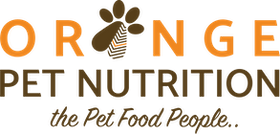
What Does a Well-Rounded Diet Look Like?
With avian nutrition in its beginning stages, scientific information is still lacking. However, most experts agree that a well-rounded diet that meets the major nutritional needs of parrots starts with a formulated base, complemented by a variety of supplementary foods.
A balanced parrot diet is made up of:
- 60% — Formulated food
- 25% — High-nutrition vegetables, and
- 15% — Nuts, seeds, high-nutrition fruits, and occasional treats
The Nutritional Basics of A Good Parrot Diet
1. Fibre
A high-fibre, low-fat diet has always been prescribed for birds, parrots included.
Fibre acts as a good digestive aid and stops constipation. This is because of its positive effect on beneficial gut bacteria, which enable proper digestion and immunity.
Being generally chewy, fibre-rich foods are also a great way to exercise your parrot’s beak muscles!
Find it in: Fresh fruits, vegetables, and leafy greens such as apples, carrots, kale, spinach, broccoli, and peas.

2. Protein
Proteins are essential macronutrients for parrots. A protein-deficient diet can cause weight loss, low immunity, cell structure changes, and issues with feathering.
Muscle and tissue building is also an important benefit that may be compromised without enough protein. In the long run, your parrot might find it difficult to fly, perch, and coordinate their movements as a result.
While seed-based food is usually considered one of the protein sources for parrots, it’s also an invitation for obesity as it contains excessive fat (which is why they were abandoned in the 70s!). Conversely, insufficient protein intake can also drive parrots to overeat, increasing the same risk.
While the right protein content needed varies based on species, age, and reproductive status, a rule of thumb is that it is typically between 10-24%.
Find it in: Nuts, seeds, certain fruits and vegetables, dairy products like yoghurt, sprouted beans, legumes, grains, and nuts.

3. Vitamins
Parrots require a range of vitamins throughout their life cycle, and plant-based foods are generally their biggest source.
Vitamin A is the most important of all. It is crucial for maintaining healthy skin, mucous membranes, glandular tissue, kidneys, and reproductive organs. Deficiency in vitamin A can lead to respiratory infections and even reproductive problems.
Find it in: Vegetables, fruits, fresh herbs, sprouted legumes, grains, and other plant-based foods in your parrot's diet.
Tip: Consider incorporating other essential vitamins for parrot health, like B vitamins for nutrient absorption, vitamin C for immune system strength and tissue repair, vitamin D for calcium metabolism and bone health, and vitamin E as an antioxidant.
4. Minerals
Calcium, copper, iodine, iron, magnesium, phosphorus, potassium, selenium, and zinc, are the most necessary minerals for supporting your parrot’s long-term health.
Calcium for parrots is especially critical as it forms the structural foundation of their bones, beaks, feathers, and connective tissues.
Find it in: Dark leafy greens like spinach, kale, turnip greens, buttermilk and yoghurt.
*For the right calcium supplementation for your bird, we recommend that you consult with a professional.
However, the other minerals can be acquired by your parrot as trace minerals through a rich and varied range of raw, plant-based foods.

5. Plant Oils
Fats are not encouraged for parrots, but they ARE essential in small amounts.
They can help provide energy, insulate cells and tissues, act as hormones, aid in vitamin absorption, and serve as cellular signal pathways.
They are also instrumental in preventing disorders such as atherosclerosis, cardiovascular disease, high cholesterol, and vitamin A deficiency.
Plant oils are a good source of healthy fats for parrots!
Find it in: Flaxseed oil, coconut oil, chia seed oil, and red palm oil.

Finding the right balance in your parrot’s diet can be tricky.
A general guideline to follow is to ensure that your bird is getting a combination of formulated parrot food pellets and supplementary options like fruits, vegetables, and treats in the appropriate amounts. Harrison’s Bird Foods and ZuPreem are popular for having some enriching pelleted food options in their range.
Remember to replenish them regularly with fresh, clean water as birds can get dehydrated very quickly.
Lastly, make sure to consult an avian veterinarian to help decide your parrot’s food choices, especially as specific parrot species have unique dietary requirements too!




